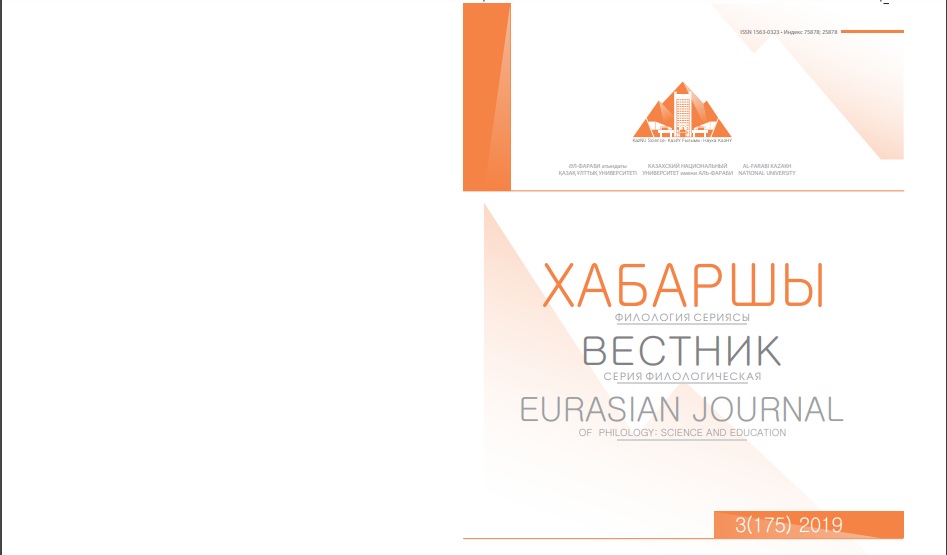Болашақ пән мұғалімдері ретінде студенттердің оқу сауаттылығын қалыптастыру жөнінде
DOI:
https://doi.org/10.26577/EJPh-2019-4-ph25Аннотация
Бұл мақала қазіргі қоғамдағы оқырман сауаттылығының жағдайы туралы өзекті
мәселеге арналған. Осыған байланысты зерттелетін материалда көрініс тауып отырған жоғары
мектеп алдында маңызды міндет – бұл орыс тілін ана тілі ретінде оқымайтын болашақ пән
мұғалімдерінің оқу (оқырман) сауаттылығын қалыптастыру.
Мақалада «оқырман сауаттылығы», «оқырман құзыреттілігі» және «оқу мәдениеті»
терминдерінің мағыналық мазмұны мен түсініктері талданады.
Мақаланың авторлары филолог емес студенттердің оқырман сауаттылығын қалыптастыру
туралы мәселені оқу ғылыми мәтіндерімен жұмыс жасау негізінде ұсынады. Өйткені мәтін
жазбаша тілдік қарым-қатынастың маңызды коммуникативтік актісі болып табылып, әр түрлі
оқырман шеберлігі мен дағдыларын дамытуға және жетілдіруге, жазбаша мәтіндерді түсіну
мен ұғынуға, олардың мазмұнын өз мақсаттарына қолдана білуге пайдалануға, сонымен қатар
тек кәсіби оқуға ғана емес, үйлесімді дамыған тұлғаға бағытталған білім мен мүмкіндіктерді
дамытуға ықпал етеді.
Болашақ пән мұғалімдеріне арналған орыс тілі оқу құралдарының материалында дәстүрлі
жұмыс түрлерін пайдалана отырып қана емес, сонымен қатар кәсіби бағытталған оқыту
саласында оқытудың инновациялық технологияларына бағытталған тапсырмаларды қолдана
отырып, оқу сауаттылығын қалыптастыру дағдыларын дамыту және жетілдіру бойынша оқу
ғылыми мәтіндерімен жұмыс істеу мысалдары келтіріледі. Қорыта келе оқырман сауаттылығының
дағдылары мен біліктерін қалыптастыру кәсіби құзыреттілікті жетілдіруге, сондай-ақ жас
ұрпақтың жалпы мәдени құзыреттілігін дамытуға бағытталғандығы туралы тұжырым жасалады.






